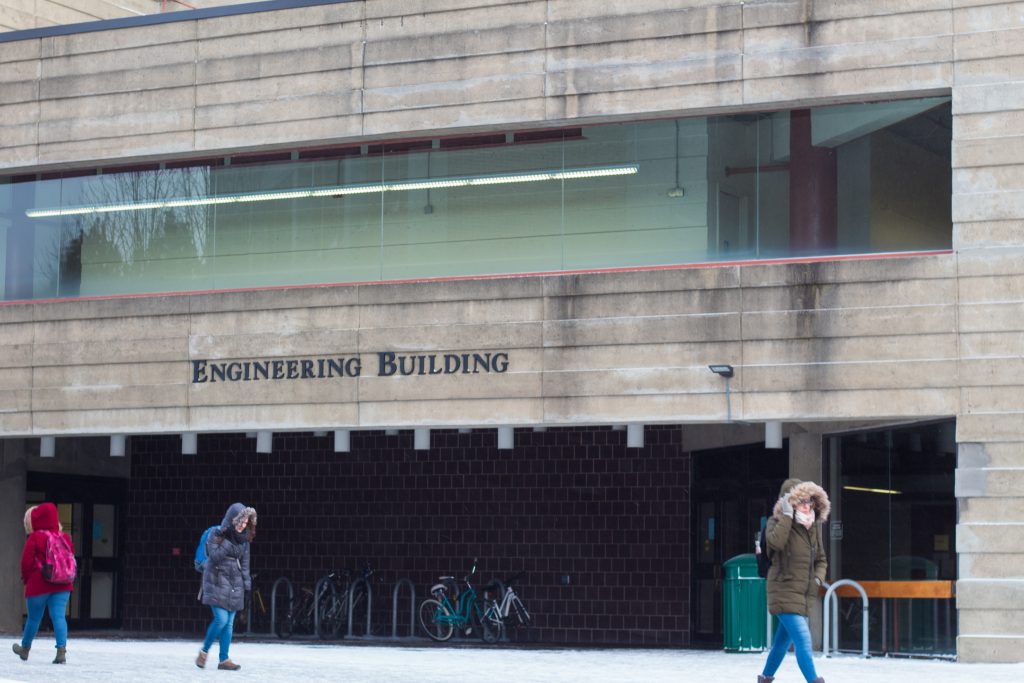Starting Feb. 4, students and faculty in the Engineering Building may notice construction crews tearing down walls, replacing outdated electrical systems and reconfiguring rooms.
Announced via a Dateline statement on Jan. 24, the renovations are set to be finished in summer 2020. Until then, classes in that section of the building will be relocated, according to Heath Weeks, the architect working with Physical Facilities at Binghamton University.
“The work will be performed in areas of the building that have been or will be emptied of occupants,” Weeks wrote in an email. “The classrooms will be offline for the duration of the project with the exception of the lecture hall. The lecture hall will be renovated next summer and be back online for the fall 2019 semester.”
Other portions of the building have undergone renovations recently, leaving this portion as the last phase of the renovation project. Weeks said the last renovations were in 2013 and improved Watson Advising and portions of the second floor. However, the areas now undergoing renovations haven’t been updated in 12 years.
While none of the updates or replacements are being made because of safety risks, Karen Fennie, communications specialist for Physical Facilities, wrote in an email that they are necessary for properly maintaining the building, which opened in 1976 and was designed by Curtis and Davis Architects and Planners in a style known as brutalism, a simple, block-like form of construction. The renovations will repair mechanical and electrical systems, windows and roofing.
“Generally an architect will sit down with project stakeholders and define a program, what the spaces will be used for and what facilities are needed and scope of work for the project,” Fennie wrote. “The project is also a ‘critical maintenance’ project, meaning outdated building systems and equipment will be replaced.”
To ensure the safety of those in the building while the renovations are taking place, construction crews will install temporary walls to separate building occupants from construction sites. Additionally, construction will be limited to early morning and evening to ensure minimal noise disruptions during the day.
Eleanore Colton, a sophomore majoring in environmental studies, said she is not excited about the early morning renovations, but believes the necessity of the work being done far outweighs the negatives.
“As someone who lives in College-in-the-Woods, which is relatively close to the Engineering Building, I’m not that excited about it,” Colton said. “But I think the progress outweighs the negative effects.”
This project will complete the last phase of renovations to the Engineering Building and while staff and students will have to navigate the disruption, Weeks said it will be worth it when the renovations are completed.
“The small inconveniences that will be endured over the next year and a half will allow for a completely renovated building bringing it into the 21st century in appearance, technology, comfort and energy efficiency,” Weeks wrote. “I would just like to thank the faculty, staff and students for their help and patience.”



